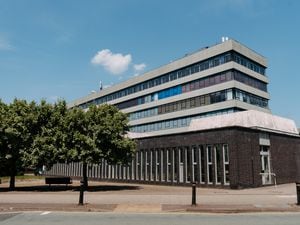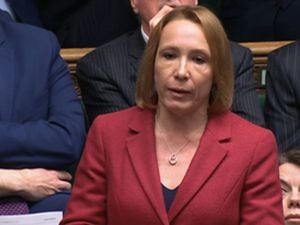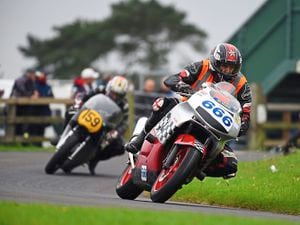Organic farming pioneers who confounded the many doubters
Shropshire farmer Sam Mayall's friends and advisers thought it would take three years for him to come to his senses.
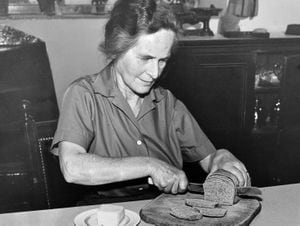
Once he had learned his lesson, they reckoned, he would go back to "modern ways" using chemical fertilisers.
But Sam and his son Richard not only stuck to their guns in becoming some of the first farmers in the UK to embrace what we now know as organic farming, but over time they confounded the doubters by having respectable productivity, healthier livestock and good profitability.
They set out on the organic path as long ago as the 1940s, and today Sam's granddaughter Ginny Mayall continues the organic family tradition at Pimhill Farm, Harmer Hill, which boasts an award-winning range of organic cereals and oat products.
"They were very courageous, because what they were doing was very much going against the grain. They were given quite a hard time by a lot of people," she says.
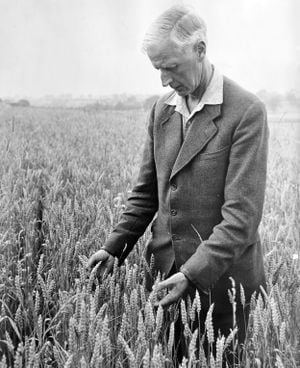
It all started in the autumn of 1948 when Richard, her father, went on a farmers' course in Glasgow and the student he was sharing digs with showed him a book, called Humus and the Farmer, by Friend Sykes, an organic farmer, and recommended that he read it.
On a home visit Richard showed the book to his dad, who was fascinated. The pair were particularly receptive to its ideas, stressing the importance of soil health, because the farm was having a problem with cow fertility. Was it because, they wondered, that they were feeding them wrongly?
So in the spring of 1949 they decided to try something new at Lea Hall Farm - as Pimhill Farm was called in Sam's day - going back to a system based on more traditional methods, relying on carefully composted farmyard manure and good husbandry.
"My friends and advisers had no doubts at all," Sam wrote in a 1965 article. "They gave me just three years, by the end of which I should have learned my lesson the hard way, and would be forced back to the fertiliser bag.
"But I had become convinced that the organic principle is right and I had to go on."
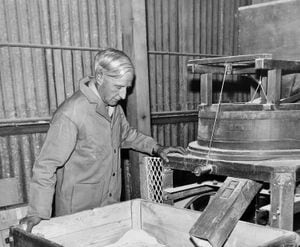
Ginny says: "It was all to do with what they thought was best by the animals and the land. They were not convinced that artificial fertilisers and sprays were the right way to go in the long term."
Sam and Richard's farm attracted press attention, with pictures of Sam and his wife Dora carried in an article in our files from July 1960 which told how: "Advocate of natural living, farmer S Mayall, of Lea Hall, Harmer Hill, has put theory into practice.
"Six years ago he and his wife stopped buying bread. Now they grow their own wheat, grind it on their own stone mill, and, finally Mrs Mayall makes the loaves. To round it all off, the farmer refuses to use artificial fertiliser to aid the wheat's growth."
During the 1960s and 1970s, Pimhill Mill flourished, supplying early wholefood shops, bakeries and restaurants across the country.
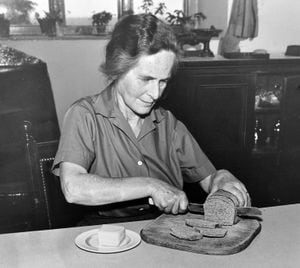
Ginny's brother, Robert, had been expected to take over the farm, but sadly he died in a car crash at the age of 20, and Ginny, who had been working in London, joined her father in partnership in the business in 1988.
Although there was no pressure put on her to carry on the organic tradition established by her father and grandfather, she says: "There was never any question in my mind about that. I believe in the system completely.
"When my brother was still alive I remember my father saying that although he had chosen to farm in that way he could choose to farm any way he liked. I would wait outside and afterwards grab my brother and say: 'Don't you dare!'"
Ginny is today the owner, and the enterprise comprises not just the organic farming arm, but also the 16th century Pimhill Barn, which is available for weddings and other events.
As for those spear-carriers for the organic cause, Sam died in about 1978, and Richard died in May last year at the age of 92, having had the satisfaction of seeing a vindication of the ideas which they helped pioneer.

